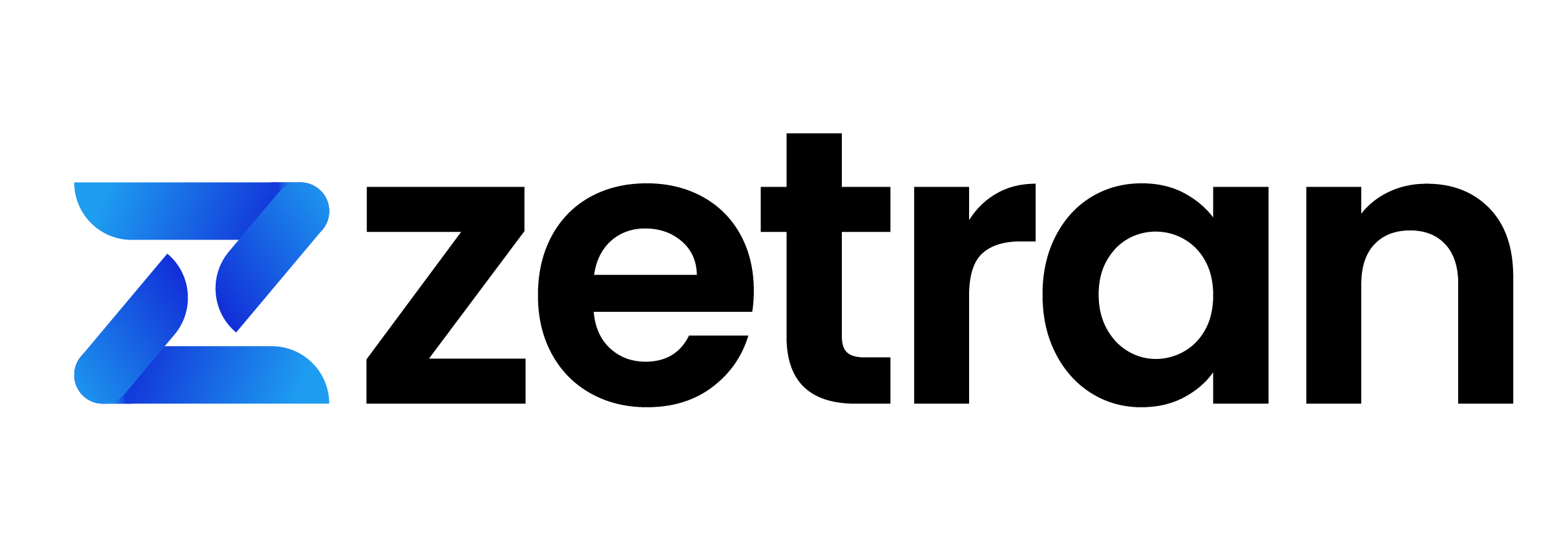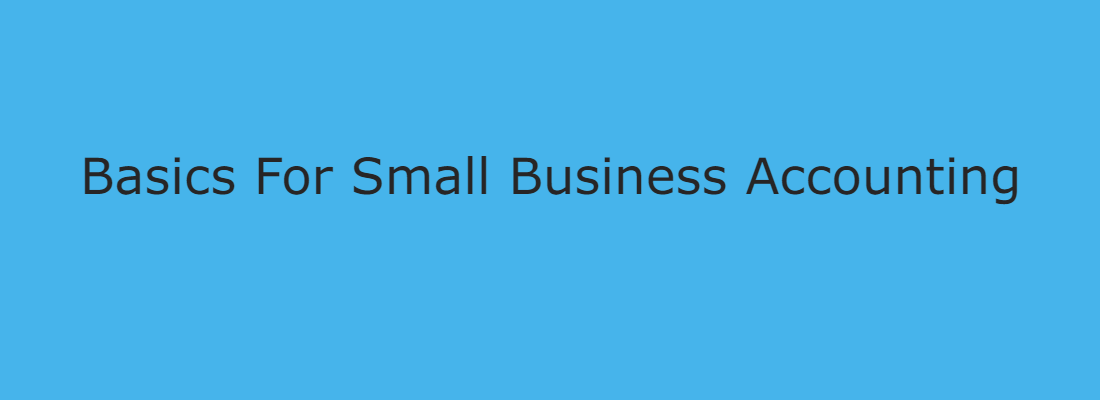Basics For Small Business Accounting
The key to the survival of your business is to understand and maintain its financial health. For entrepreneurs, carrying out basic accounting can be tedious, especially for those without the required training. However, the money, time, and other resources invested in the business can only be nurtured to grow with proper and regular monitoring of the financial standing of the enterprise –even the fortune 500 companies.
Keeping up-to-date financial records has many benefits but you cannot do that if you are not familiar with the fundamental terms in accounting and how important they are. After registering your business, you must be able to keep your personal asset and liability from that of your business. One way to do this is through proper bookkeeping and thorough accounting.
How small business accounting is performed?
Small business accounting is performed by maintaining the entire business record with all the expenses and income, and by the accurate financial data from the company’s transactions.
It is important for every small business owner to track and record their cash flow. Cash flow will let you know – where your money comes in and goes out – mainly when there are in the startup stage. Similar to handling and holding the business’s past and present performance records, it is also important to perform small business accounting. As this will assist you in generating invoices and accomplishing payroll.
How to set up a small business accounting system?
Here is the basic setup for a simple small business accounting system.
Open a separate business bank account
It is always advised to hold a separate business accounting apart from your personal expenses. This will help you analyze your business’s financial transactions and can create a budget for the future.
Pick the right accounting method
While an entrepreneur plans for their small business accounting, then it’s time to pick the suitable accounting method to record and document their respective business financial transactions. In general, there are two different methods to record the business income and expenses, i.e. – cash basis of accounting and accrual basis of accounting.
-
Cash Basis
The cash basis accounting method will assist you to record and document your business financial transaction, only when the cash transaction is accomplished. For instant, you can record and document revenue for a product, only when your respective customer pays for that product.
-
Accrual Basis
Though the cash basis accounting method finds to be easier, most small business owner prefers to just for the accrual basis accounting method, for recording their income and expense. The accrual basis accounting method will record the business income, only when a business makes a sale and record the business expense when the business incurs them. This is irrespective of whether you obtained or paid cash for the product or service. You need to utilize a double entry accounting system and document two records for each business transaction.
Recording Business Transactions
As an entrepreneur or a small business owner, you can hire an accountant as per your need for recording the financial transactions by hand or you can use the right small business accounting software to record your business financial transactions.
Compile a CoA
CoA is nothing but a Chart of Accounts. The CoA will list all your business transaction activities. It is utilized to compile the statements, review what is going on, and locate the business transactions. CoA has to be updated more frequently to include the various business transactions.
Choose the suitable payment terms
As per the type of business, you can choose the payment methods for your customers. Also, you might be concluded to provide credit to your customers. It is always better and advised to receive the payment through invoicing the customer. If you have chosen to extend the credit to your customers, you just need a stable system of preparing and sending the invoices.
Based on the nature of your business, you might decide to offer credit to customers. Instead of collecting payments at the point of sale, you may choose to invoice them at a later date.
If you decide to extend credit to customers, you will need a consistent system of creating and sending invoices.
How to perform small business bookkeeping?
Here are the steps to perform your small business bookkeeping process.
Interpret the Financial Transactions
In general, the small business accounting process begins with diagnosing the financial statements and documenting the ones pertaining to the business entity in your business accounting system. For an instant, if you take a loan for any of your personal reason, that cannot be included in your business financial document.
The foremost step in the small business accounting process is creating the source document. The source document is considered the pillar for the transaction recording.
Journal Entries
Every business’s financial transactions are recorded and documented in a journal (also represented as a Books of Original Entry) in chronological order, by utilizing the double-entry bookkeeping system. There are two accounts in the journal entries – credit and debit accounts.
The accountants will process this method better easier, by using the special journal to document and record the recurring transactions like – sales, purchases, receipts, cash, and so on. If any of the financial transactions are not recorded in these special journals, then those transactions are recorded in the then general journal.
General Ledger
As per the term general ledger, it is the ledger that will hold the accounts which display any of the modifications performed in every account as per the previous transactions, including the current balance in each account. The general ledger is also called to be, the Books of Final entry.
Unadjusted trial balance
Generally, the trial balance is created to estimate whether the entire debits are equal to the entire credits. These accounts are pulled from the general ledger and placed in a report. The columns of debit and credit balances must match one another.
If that does not match, then there is an error in the trial balance, which needs to be spotted and resolved by updating the entries. It is significant to cite that some of the errors may arrive despite the debits equaling credits, like – errors because of omission entries or that are generated by the double posting.
Adjusted Entries
At the final stage accounting period, the respective accountant must create the adjusting entries to modify the accounts which are outlined in the business financial statement. For instance, you earned an income that was not recorded in the books.
These adjusting entries are prepared for the accrual of both expense and income, prepayments, deferrals, and allowances.
Adjusted Trial Balance
Once a small business owner or an accountant does the adjusting entries, next in the queue is to prepare the adjusted trial balance. It is performed to check whether the debit and credit accounts match each other, after performing the adjusting entries. Adjusted trial balance is the final stage, before the business’s financial statements preparations.
Financial statements
The financial statement will hold the balance sheet, income statement, equity statement changes, cash flow statement, and notes are the final product of the accounting system.
Closing entries
For preparing the next accounting system, the temporary accounts which are periodically measured, holding the expense, income, and withdrawal accounts, are closed. The balance sheet accounts are also termed permanent accounts, which tend to be open for the upcoming accounting cycle.
The final stage for your small business accounting cycle is to create the post-closing trial balance. This is performed to test the debits and credits equality amounts, once the closing entries are accomplished. This trial balance holds only real accounts, as the temporary accounts are accomplished and closed during this accounting process.
Do your small business needs an accountant?
Hiring an accountant for your small business can assist to save your time and money, which results in an increase in business productivity. Here is the list of benefits for a small business owner, if they hire an accountant for their business.
- They will provide valuable advice on your business entity structure.
- Assist you to acquire respective licenses like – sales tax permits, business licenses, and employment accounts.
- They will deal with the issues based on complex sales and compliance.
- Assist you to reach your needs to licensing agencies or creditors.
- Once your start your business, the right accountant will assist you to write a business plan
- Helps to manage the difficult labor cost – also by including the labor and wages compliance, which can drop even the profitable business.
- They help the small business owner to manage the inventory records by purchased dates, purchase price, sales price, stock numbers, and the dates sold.
- Accountants will assist small business owners and entrepreneurs to set up the accounting and CoA when a small business owner does not want to involve in the regular bookkeeping services.
Tips for the small business owner who can’t afford to hire an accountant
It’s really hard for the smallest business owner to hire accountants. As they are startup companies, it’s really hard to hire an accountant and pay them. Also, most small business owners were not aware of most of the accounting terms and processes. So they can go for the small business accounting software.
Most of the accounting software covers every basic of small business accounting from invoicing to real-time reports. One such accounting software is mybooks. mybooks is one of the free accounting software for accountants and non-accountants. This software will guide you in maintaining all your accounting in an organized way by maintaining accurate records and by preparing the basic business financial statements.
Accounting Vs Bookkeeping
Though some use it interchangeably, bookkeeping is quite different from accounting.
Bookkeeping is the daily recording of financial transactions while accounting is the overall process of recording, interpreting, analyzing, summarizing, and reporting financial data. Therefore, bookkeeping is only one of the processes of accounting.
In accounting, you usually hear the words assets, liabilities, incomes, and expenses. The business assets are what it possesses, be it furniture or cash, inventory, and even money owed to the company. Liabilities, on the other hand, are what the enterprise owes (not owns), these include loans, accrued tax, and rent and wages payable. Just like income, assets must be increased regularly to keep the business growing while liabilities, just like expenses must be kept to the barest minimum.
Account Receivables Vs Accounts Payable
Account receivables are the amount due to be collected from customers for sales made. These reports must be prepared to show those that are overdue for payment, which helps to keep track of your cash flow and budget system. In contrast, account payables are the amount the business owes its suppliers. The account payable report serves as a reminder for due payment. Timely payment helps to build a good rapport between you and your vendors or suppliers.
Benefits of Regular Tax Payments
Regular payment of taxes not only keeps your business breathing but also reduces unnecessary interference from the government. Small business owners must prepare sales tax reports. The amount to be paid as tax is calculated by adding the total annual income of the business, which can be done with mybooks cloud accounting software, and subtracting the expenses from it. You must also keep records of the sales tax returns filed annually.
The purchases account is essential for calculating the cost of goods sold by the business but it is also necessary to prepare the sales account because that is how you know what profit from the goods sold.
As your business grows, you will need helping hands –employees. There is, therefore, a need to prepare a payroll account to reflect the amount you pay this employee and how often.
Managing your business account, preparing the necessary report, and interpreting it are continuous routines that need to be done. This does not necessarily have to be a boring task because mybooks cloud accounting software is here to simplify the task for you.






